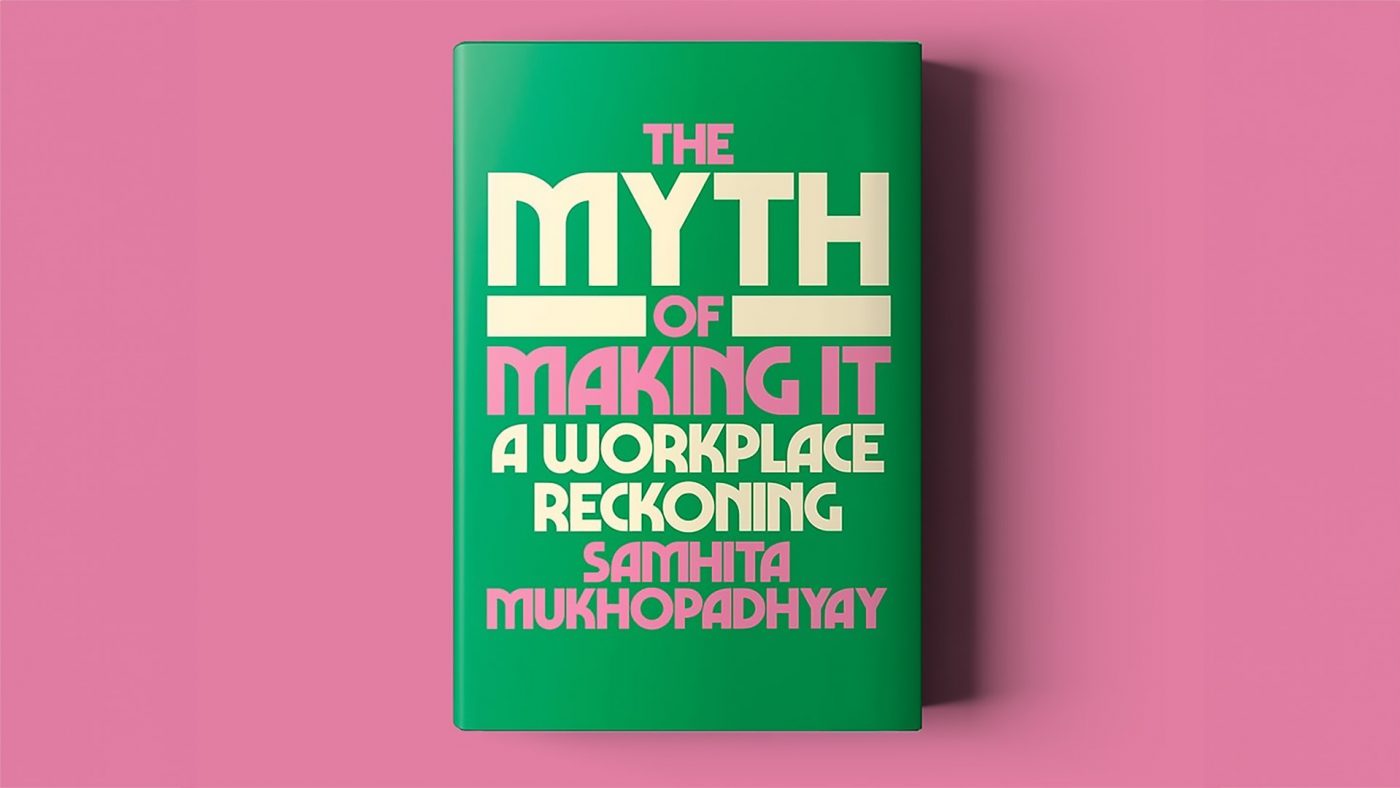Four years since the COVID-19 pandemic shook U.S. workplaces and its child care systems, parents continue to engage in vital paid work without the support of publicly funded child care and other family friendly policies that are common in wealthy, peer countries. Despite this, women aged 25 to 54 are participating in the workforce in record numbers, including nearly 70 percent labor force participation among mothers of young children. They also continue to perform a disproportionate amount of unpaid labor, doing more care work, housework and more cognitive labor in support of America’s families than their male partners.
As movements continue to fight for universal, affordable child care and paid family and medical leave, and for workplace reforms through union organizing and forms of activism, prominent politicians like Republican Vice-Presidential nominee J.D. Vance question women’s place in the workplace. In his acceptance speech at the Republican National Convention, he vowed to represent the “working man” in America. In the past he has critiqued the Democratic Party as being run by “childless cat ladies,” and argued that women should be having children rather than working long hours.
Samhita Mukhopadhyay has covered gender and racial inequality in society throughout her career as a writer, editor, organizer and nonprofit leader. In just a few short years she went from executive editor of the now-defunct blog Feministing to executive editor of Teen Vogue, where she oversaw a massive transformation in its coverage, from just fashion-as-usual, to fashion plus all the political, social and identity questions young people were facing. She resigned from that role in 2022.
Her third book, The Myth of Making It, takes on the problem of women’s burnout from juggling both the unpaid work of family life and the demanding paid work in thankless, profit-driven jobs, and defends women’s right to ambition. The question, she asks, is where should we channel that ambition? Early Learning Nation contributor Haley Swenson sat down with Mukhopadhyay to discuss her journey to understand work and ambition differently in the years since she first “made it.”
Haley Swenson: I’ve read you for such a long time, going back to when I was a college student and you were writing for Feministing. And then I remember a few years ago, during the pandemic, everybody was like, wow, look at Teen Vogue. We were seeing articles about socialist feminism and dreamers and DACA and prison and policing and everyone was saying, what’s going on over there? And then I found out you were the executive editor, and I said, aha, that’s part of what’s going on over there.
And I remember thinking, “Wow, she’s really made it!” So maybe we could start there. Tell the readers a little bit about that experience, of “making it,” getting that big management job, and how the reality of that led you to this book.

Samhita Mukhopadhyay: I think I also felt like I had made it. You know, I worked really hard to get to a place where I would even be considered for a position like that. I should have felt this tremendous sense of satisfaction, and I did. I really was proud of the work we were doing, and I was happy to have the job. But there was a deeper part of me saying I worked really hard to get here, and now what? Why am I exhausted? Why do I not have space to take care of myself? And I wasn’t making the kind of money that I felt like I should be making for how much experience I had, and what I was bringing to the table, which kind of made me start to question what all of this was for.
But I didn’t really face that question until the pandemic, when I had this moment that many women had of asking, why do I work all the time? Maybe work isn’t the core organizing value for my life. And there’s a very earnest battle right now to take rights away from women and to say that women should have never been allowed in the workplace. The pandemic forced me to start reporting out what I felt was a reckoning that women were having with their relationship to ambition. I wanted to come in strong with a counter-argument that we weren’t wrong for having ambition, but we were set up to fail.
Swenson: Ambition is a theme that keeps coming back throughout the book. Prior to that pandemic moment, when many of us questioned it all, you talk about how in terms of workplace feminism we had “lean in” and we had “girl bossing,” the idea, as you say, that, “there’s nothing that a little elbow grease and the right shade of lipstick can’t overcome.” What happened in the pandemic that made those ideas of women’s ambition seem so antiquated?
Mukhopadhyay: This was most pointed with mothers. I think that a lot of mothers have been told that you can have it all. You can work and have your family. You just need to organize your time and you’ll be fine. And many of them realized how burned out they were, especially when they lost all of the support they needed to be successful in their careers, like child care, home health workers, housekeepers. When that underbelly of workers that keep many middle class and affluent women afloat dissipated, I think a lot of women had to face that their ambitions were fragile, that they were resting on this care economy and this false idea that you can have it all. And I think that’s the biggest thing that started to unravel.
I also saw this with my single women friends, who I think had been told to put everything into their careers, asking, “Wait, why did I work this hard? Now, none of that matters, because I can’t even go to an office, and I can’t even spend the money I’m earning in a restaurant. My fancy clothes don’t matter. Having a fancy apartment isn’t important anymore, because we’re struggling for our lives out here.”
I think that forced us as a country and a society to ask, what is success? How much do we actually need? A lot of families took a step back from their professional duties to ask these questions. Maybe we got a taste of a balanced life. We got a taste of what it would be like to not just prioritize work at all costs.
Swenson: Sometimes in the child care and paid leave spaces, we say that because the United States doesn’t have robust social policies, you’re really left to the “boss lottery,” where it’s up to your manager whether you can have a balanced life. There’s also this pressure, which you experienced in management positions, of wanting to do right by your employees, the people who report to you, to be that supportive person, to help them develop, but at the same time you have very little power to protect them when push comes to shove. What’s your vision of what management could look like?
Mukhopadhyay: I’m interested in building off of the work of the great feminist theorist Barbara Ehrenreich, to develop her idea of the professional managerial class as this middle layer of management that could become radicalized and stand with other workers. Something promising that we started to see during the pandemic, was white collar workers, or knowledge workers, coming into consciousness about their own labor conditions.
I see an opportunity to think about management less as a climb to the top, and more about people. We should grade managers on that, on how well you build your team and relate to them and support them. And that should be as important as your ability to come up with creative ideas and to execute.
The old model of management isn’t really working right now. Even just for the most basic economic reasons, we really need to start thinking about models that do empower and include larger groups of people to feel purpose-driven.
Swenson: At the end of the book, I was feeling so optimistic. You cite so many examples of workers who aren’t taking it anymore, and are either forming unions or just saying enough is enough and radically changing their lives to be more about community and less about work.
You offer the idea of instead of channeling our hustle energy—our ambition into personal success—trying to channel that into collective change in the workplace. That seems like a starting point for any of the kinds of changes you want to see, so we are no longer set up to fail. Can you explain how you see us replacing the old feminist dream of having it all with the goal of “just having enough”?
Mukhopadhyay: It really has to be a collective reckoning to say that we’ve had enough of how we’re treated in the workplace. We’re not going to do it anymore. The expectation is that if you have it all, you have to do it all, and I’m not going to do it all. And if you want me to do it all, you’re going to pay me equitably for it. And that may mean making some personal sacrifices. It means that maybe you don’t put yourself up for that promotion. Maybe you don’t, and I’m talking directly at the camera to myself right now, take that third freelance gig.
Maybe you have to say, I don’t need to keep pushing and pushing, because the more I push, the harder it is for me to actually enjoy what I have and to not make myself sick and stressed out and depressed in the process.
The easy narrative here is to say, well, this is why women should never work. The whole problem with that is whether you’re working outside the house or inside the house, you’re still working. And most women don’t have the choice to be in the house or outside of the house.
I know many women that would love a little more leisure time, but I do not know any woman that’s not out here hustling. This system was designed to make us miserable, to set us up to fail. But [pushing back] is also something that we need to do collectively. You can “quiet quit” as an individual, but if the person next to you at work is going to pick up the slack, you’re not creating a collective environment where we’re all saying together, “this is what we’re willing to put up with, and this is what we’re not willing to put up with.”
Swenson: Speaking of the moment we’re in right now, politically, has anything changed for you, in terms of your sense of what’s possible, or your optimism about the direction we’re headed in. How is the prospect of a second Trump term affecting your thinking?
Mukhopadhyay: I think that there is such a naked war on women and women’s ambition. J.D. Vance has openly condemned the idea of women in the workplace, women’s independence, women’s ability to leave relationships that are domestically violent. This is part of a working world order and mindset where women are second-class citizens, where their creativity is clamped down on, where their actual human rights are being restricted. And that is very dangerous.
And it’s not that feminists are against ambition. It’s not that we’re lazy and it’s not that we don’t believe that women should be ambitious. What we’re saying is it’s too hard and we can’t do it alone. The solution to that cannot be that we don’t try. What are the conditions for us to successfully try? And that’s why I think this moment is very linked to our fight for democracy and for women’s human rights.
It’s not a coincidence to me that we’re having this profound backlash on women in the workplace, that so many mothers were pushed out of the workforce during the pandemic at the same time we saw the overturning of Roe v Wade, and the rise of the, quote, “trad wife.”
One of J.D. Vance’s quotes is, “If your worldview tells you that it’s bad for women to become mothers but liberating for them to work 90 hours a week in a cubicle at the New York Times or Goldman Sachs, you’ve been had.” And that’s really effective messaging. It isn’t liberating for me to work 90 hours a week, but then neither is forced motherhood.
Swenson: So what is the message you have for women?
Mukhopadhyay: I think a lot of books right now are saying, don’t give up the fight. And I am saying, yes, but pick and choose your battles. You are not alone in what you’re feeling. And I think that one of the problems with neoliberal, lean-in feminism has been that we have put the culpability for women’s progress on the individual woman. You alone cannot change the parental leave policy in your company or in your state. You alone cannot overcome the unequal pay gap. So much ink has been spilled about that moment when you ask for more money, like that’s the core of workplace feminism. “Speak up in meetings and make sure you ask for more money.” And I would never tell someone not to do those things. I just want us to give ourselves a pat on the back. We’ve done enough. But we alone can’t solve these problems. So what does it look like to use our ambition to build a community of support, around the kinds of lives that we want to live, and the kinds of work we want to do?
By Samhita Mukhopadhyay

Haley Swenson
Haley Swenson is a research and reporting fellow for Better Life Lab, the intersectional gender equality and work program at the non-partisan think tank New America. She is also editor and co-founder of Work Life Everything.



